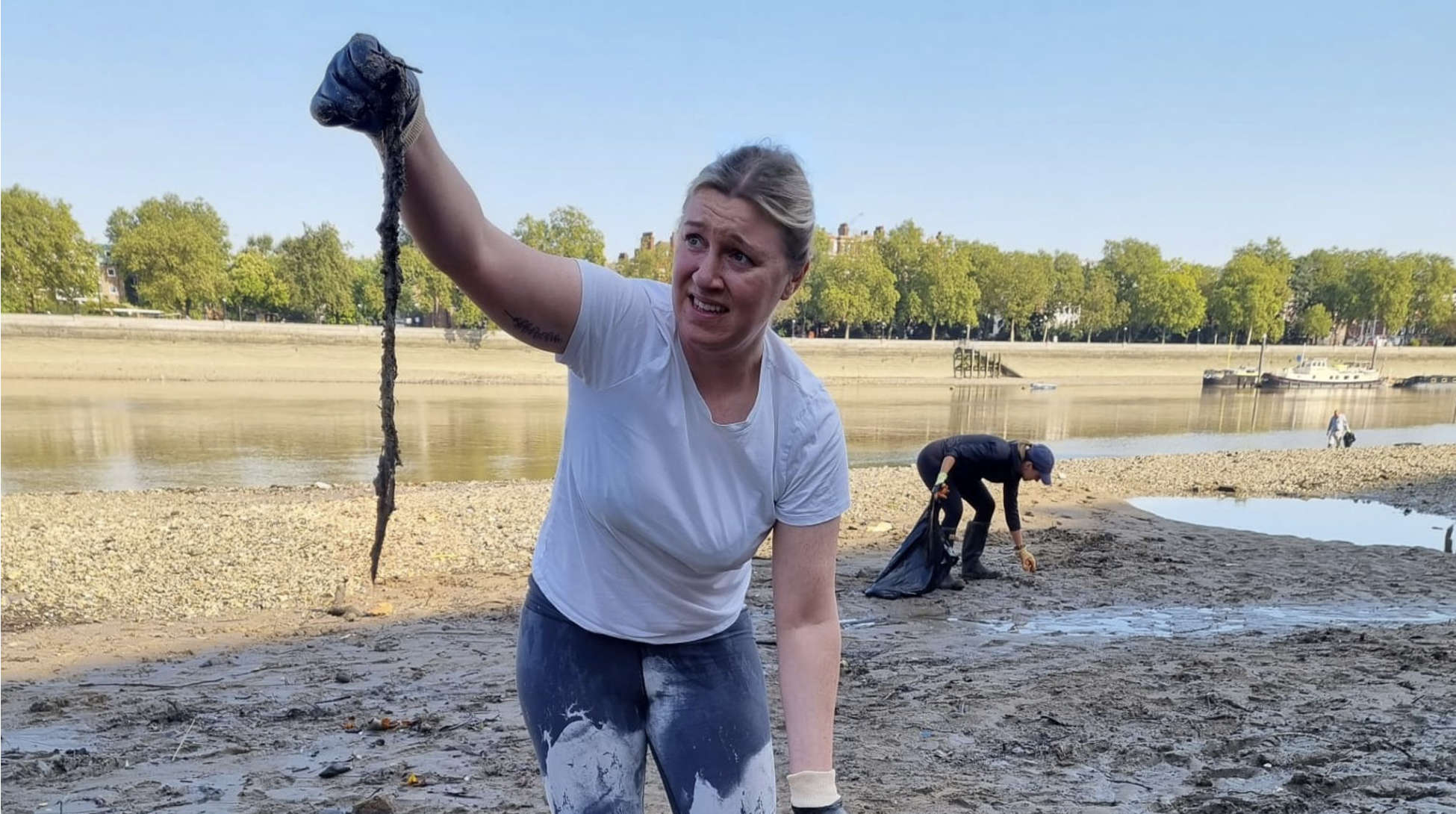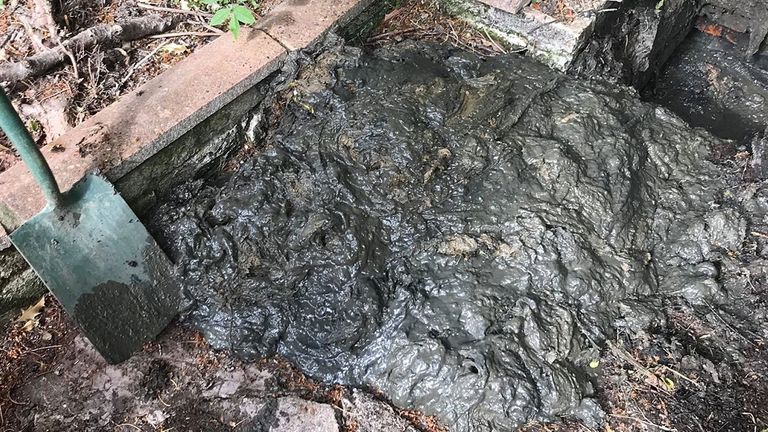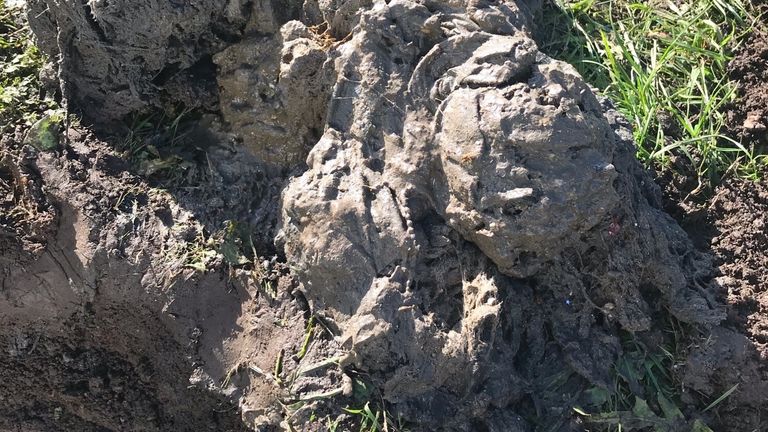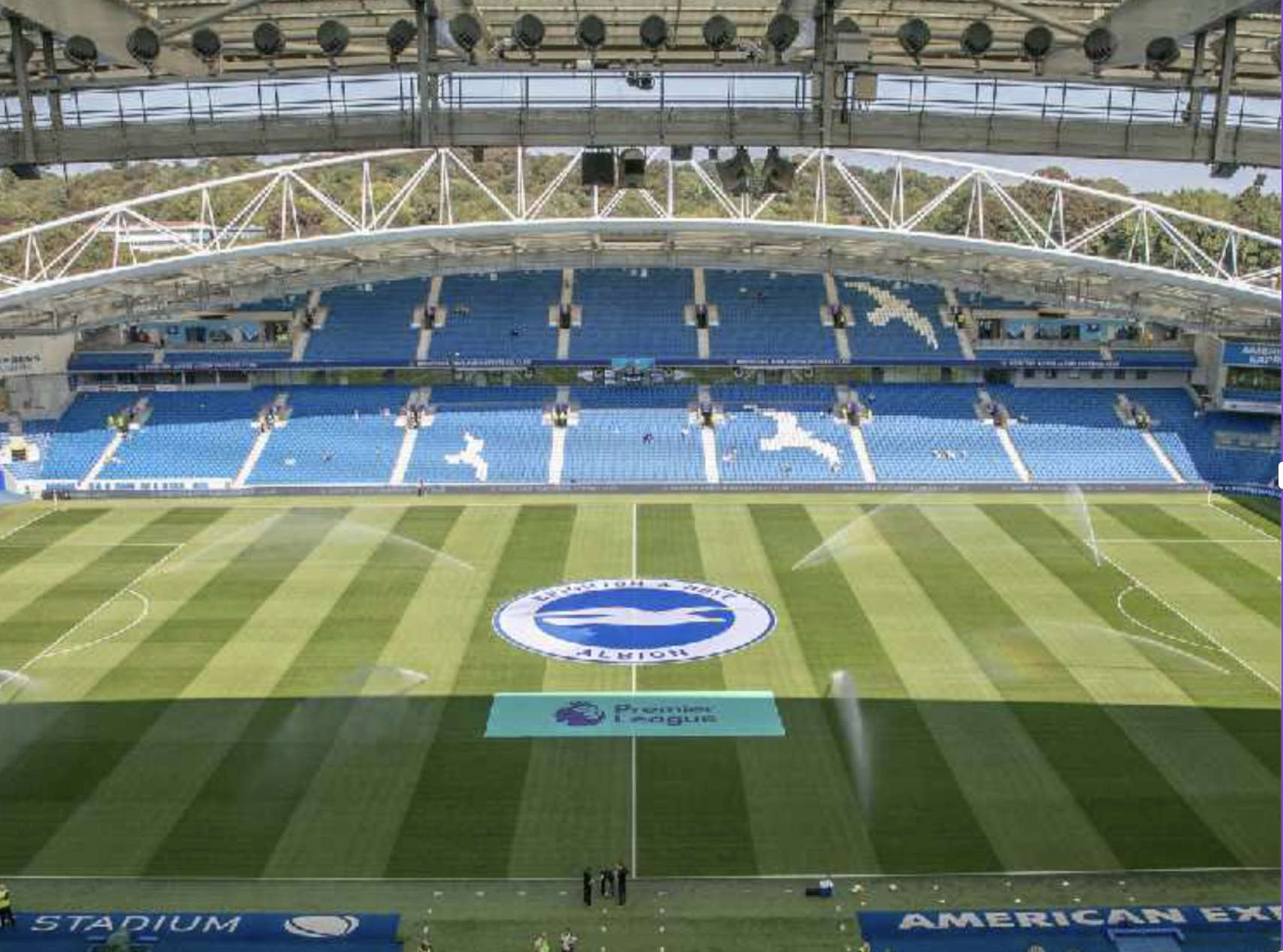
Eco-friendly wet wipes should not be branded okay to flush down the toilet after all, Britain's water industry has said.
Water UK is dropping its "Fine to Flush" branding on hygiene wipes, admitting customers were confused about what should or should not go down the loo.
The certification scheme assessed baby wipes, which contain plastic, to see how well they broke down in sewers, deeming those that met the test "Fine to Flush".
It only applied to baby wipes and other products used in lieu of toilet roll, but not to things like make-up or cleaning wipes.
But between 2.1-2.9 billion wet wipes end up in Britain's waterways each year, according to the environment department, clogging up sewers and creating "massive wet-wipe reefs" in waterways, found one study.
'Fatberg' threat
The 2020 study found even "flushable" wipes were forming "fatbergs" - chunks of solids like wipes plus grease and fats that block pipes and can cause flooding in homes and streets.
Last year, then Environment Secretary Therese Coffey told producers that labels saying "flushable" or "fine to flush" could "encourage consumers to dispose of wipes down the toilet, rather than disposing of them responsibly in the bin".
She ordered them to clean up the confusion, and the water industry has now confirmed it will ditch the certification from March.


A Water UK spokesperson said:
"Following recent guidance from government, we are now focused on urging customers to dispose of wet wipes appropriately through the Bin the Wipe campaign."
Consumer confusion
It maintains there was no problem with the certification scheme, but admitted that the confusion meant consumers were still flushing all kinds of wipes down the toilet.
One in five Brits surveyed by Savanta, the market research company, last year admitted to flushing wipes down the toilet.
Water UK claims the Fine to Flush branding, introduced in 2019, fuelled a switch by producers to more eco-friendly wipes to win the certification.
In 2022 Tesco said it would stop selling branded baby wipes containing plastic after it had already removed plastic from its own-brand product.
'Bin it, don't flush it'
A spokesperson for environmental charity Thames21, which has picked up more than 135,000 wet wipes from the Thames foreshore in five years, welcomed the "great news".
"Improving this labelling will help to stop consumer confusion and help to educate the public about how to dispose of wet wipes properly," they said.
Separate studies have found tiny plastic particles inside flounder and mitten crabs in the Thames, though the source of the plastic was not specified.
Thames21 backs the "Bin it, don't flush it" ethos, saying, "Only the three Ps (pee, poo and paper) should be flushed down the toilet".
It called on water companies to invest in sewage infrastructure to avoid emergency overflows that release toilet waste into Britain's rivers and sea.
Amid public outcry over sewage pollution in waterways, the government last year launched a consultation on banning plastic in wet wipes.
Trade body Edana, which represents wet-wipe manufacturers like Kimberly-Clark and Procter & Gamble, said wet wipes are "not the primary cause" of sewer blockages.
Wet-wipe denial
"Scientific research shows that the primary cause of sewer blockages is Fats Oil and Grease (FOG) being incorrectly poured down the drain by both businesses and consumers," they said in October when the government consultation was launched.
Responding to the news today, an Edana spokesperson said:
"It is important to remember that products which have been tested to this demanding specification remain flushable whether or not they carry a Fine to Flush logo.
"Consumers can still be confident that all Moist Toilet Tissues from our members in the UK remain flushable, biodegradable and plastic-free."


 New Bathing Water Sites Approved In Worthing
New Bathing Water Sites Approved In Worthing
 Renowned Sussex Band Donates To KSS Helicopter Appeal
Renowned Sussex Band Donates To KSS Helicopter Appeal
 Adam Lallana To Leave Albion At End Of Season.
Adam Lallana To Leave Albion At End Of Season.
 Update On Investigation Into Fatal Collision Near Petworth
Update On Investigation Into Fatal Collision Near Petworth
 Mental Health Awareness Week: Free Health Walks In Brighton & Hove
Mental Health Awareness Week: Free Health Walks In Brighton & Hove
 Lewes Prison Under Pressure As Penal Reform Charity Responds To Latest Report
Lewes Prison Under Pressure As Penal Reform Charity Responds To Latest Report
 PHOTOS: Ed Sheeran Makes Surprise Visit To Brighton School
PHOTOS: Ed Sheeran Makes Surprise Visit To Brighton School
 Hove Bar Licence Reviewed After Years Of Complaints
Hove Bar Licence Reviewed After Years Of Complaints
 Record Number Of Wild Swimming Spots Designated As Bathing Sites - With Three More In Sussex
Record Number Of Wild Swimming Spots Designated As Bathing Sites - With Three More In Sussex
 Council Calls On West Sussex Residents To Consider Fostering
Council Calls On West Sussex Residents To Consider Fostering